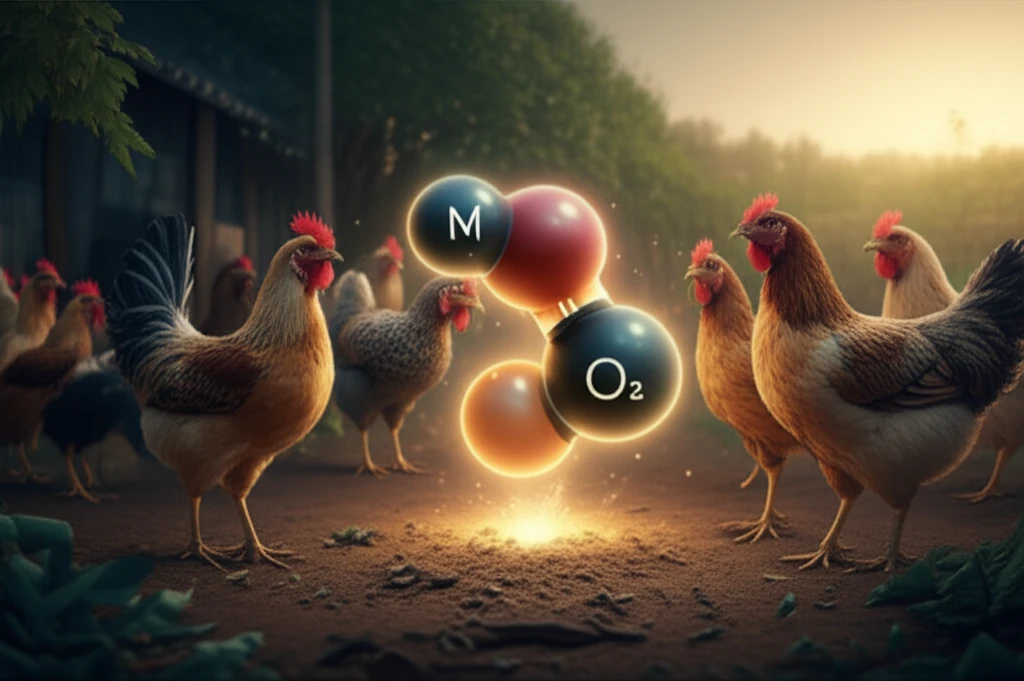
Is Your Chicken Getting Enough? The Truth About Methionine, Threonine, and Poultry Health
"Discover how optimizing amino acid levels in your chicken's diet can boost immunity, growth, and overall well-being. Are you unknowingly shortchanging your flock?"
For chicken keepers, ensuring the health and productivity of their flock is paramount. Optimal nutrition plays a pivotal role, and two amino acids, methionine and threonine, are particularly crucial. These building blocks of protein are essential for growth, immunity, and overall well-being. But what happens when chickens don't receive enough of these vital nutrients? Are standard recommendations always sufficient, especially when birds face health challenges?
A 2010 study published in the American Journal of Animal and Veterinary Sciences sheds light on this very question. Researchers investigated the impact of varying levels of methionine and threonine supplementation on broiler chickens challenged with infectious bursal disease (IBD), also known as Gumboro disease. IBD is a highly contagious viral disease that compromises the immune system, making chickens more susceptible to other infections. This research aimed to determine if increasing methionine and threonine beyond standard recommendations could improve growth performance and liver function in chickens facing this immune challenge.
The study's findings offer valuable insights for poultry owners seeking to optimize their flock's health and resilience. By understanding the roles of methionine and threonine, and how their requirements may shift under different conditions, chicken keepers can make informed decisions about feed supplementation and management practices. Let's dive into the details of the study and explore its implications for your flock.
Methionine and Threonine: The Dynamic Duo of Chicken Health

Methionine and threonine aren't just any amino acids; they're often the first and third limiting amino acids in corn-soybean meal diets, which form the basis of many commercial chicken feeds. 'Limiting' means they're most likely to be in short supply, hindering the bird's ability to utilize other nutrients effectively. Without adequate methionine and threonine, chickens can't reach their full growth potential, and their immune systems may suffer.
- Growth and Development: Methionine and threonine are vital for protein synthesis, supporting muscle development, feather growth, and overall body mass.
- Immune Function: They play a key role in producing antibodies and cytokines, which are essential for fighting off infections.
- Liver Health: Methionine is involved in detoxification processes within the liver, helping to remove harmful substances from the body.
Beyond the Basics: Tailoring Nutrition for a Healthy Flock
The 2010 study underscores the importance of considering individual flock needs when it comes to nutrition. While NRC recommendations provide a solid foundation, they may not always be sufficient for chickens facing immune challenges or other stressors. By carefully monitoring your flock's health, consulting with a veterinarian or poultry nutritionist, and understanding the roles of key nutrients like methionine and threonine, you can create a feeding program that truly supports their well-being and maximizes their potential.
